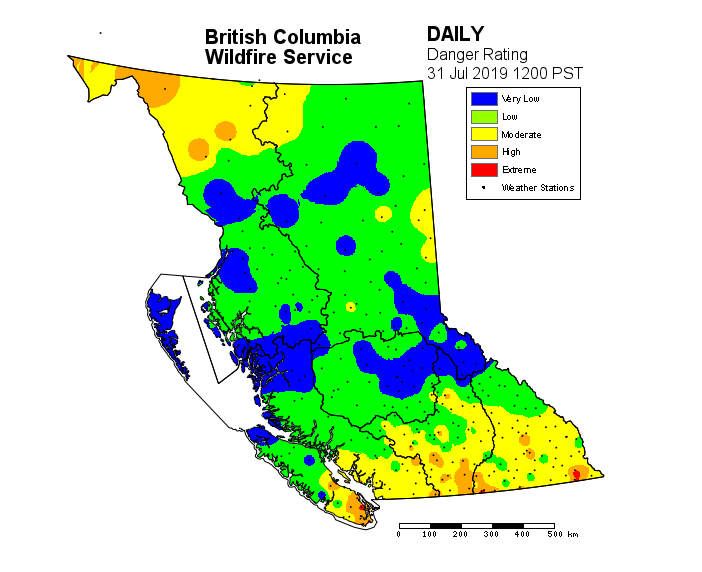While this year B.C. has largely escaped the wrath of the recent back-to-back record-breaking wildfire seasons, officials are still warning the public to be vigilant over the coming long weekend.

The BC Wildfire Service (BCWS) is warning of hot, dry conditions expected to persist across many parts of the province over the B.C. Day weekend.
“While wildfire activity so far this year has been relatively normal, the month of August is typically the most active part of B.C.’s wildfire season,” the agency said in a media release.
WATCH: 2018 Year in Review — Is wild weather this year proof of climate change?

The fire danger rating for a vast swath of the central part of the province remained low or very low on Thursday.
However, the northwest and southern regions were trending from moderate to high, with a few smaller pockets of “extreme” risk.

The bulletin comes at a time when campfires remain allowed in all parts of B.C. under the wildfire service’s jurisdiction.

Get breaking National news
WATCH: More money in B.C. budget for wildfire response as natural disaster costs soar

British Columbians are being reminded that campfires must be no longer than 0.5 by 0.5 metres (1.6 by 1.6 feet), and to take precautions such as keeping water and a shovel handy.
Smokers are also being reminded to properly dispose of their butts, and dirt bike and ATV riders are reminded they must have a spark arrestor installed to operate on Crown land.
Information on current fire bans and prohibitions can be found here.
The BCWS said B.C. has seen 579 wildfires since April 1, with nearly 60 per cent of them caused by people.








Comments
Want to discuss? Please read our Commenting Policy first.